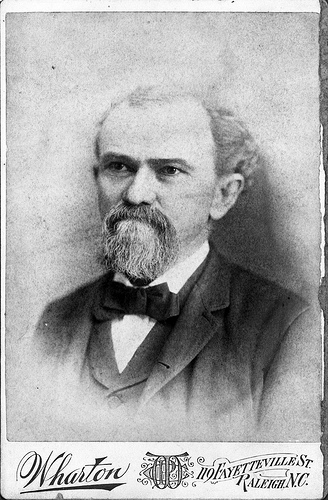15 May 1836–2 June 1890

William Abram Darden, farmer, politician, and Alliance leader, was born in Greene County to William Augustus and Harriet Speight Darden. He was educated in neighborhood schools before he began the study of law at Randolph-Macon College. Poor eyesight compelled him to abandon his studies in his junior year and take up farming.
In April 1861 Darden volunteered for service with the Confederacy and was elected second lieutenant under Captain R. H. Drysdale in Company A, Third North Carolina Regiment (Greene County Rifles). He represented Greene County in the Secession Convention of 1861–62. Again volunteering for Confederate service, he assisted Captain Andrew Moore to raise troops for Company F, Sixty-first North Carolina Regiment (Clingman's Brigade), of which he became second lieutenant and later captain. He was captured in the attack on Fort Harrison, Virginia, on 30 Sept. 1864 and imprisoned at Fort Delaware until June 1865.
When the war ended Darden returned to his farm and became active in Democratic politics. In 1884 he was elected to the North Carolina House of Representatives from Greene County and served one term. In the late 1880s he became active in the Farmers' Alliance, a farm protest organization that spread from Texas into other southern states. He served as first president of Enterprise Alliance, a subordinate order, and first president of Greene County Alliance. In 1888 he was elected the first business agent of the North Carolina Farmers' State Alliance. He declined to serve a second term but accepted appointment as district lecturer for the First and Second Congressional districts.
Darden was married twice. On 13 Aug. 1857 he married Sarah Speight Moye by whom he had three children. She died on 25 Aug. 1863. Six years later, on 26 Jan. 1869, he married Catherine Speight Adams who bore him nine children, seven of whom survived. He died from a heart attack in Gatesville, Gates County, at one o'clock, the hour scheduled for his Alliance lecture. His funeral and burial took place at his home, Speight's Bridge. He had been a member of the Methodist Episcopal church since the age of six.